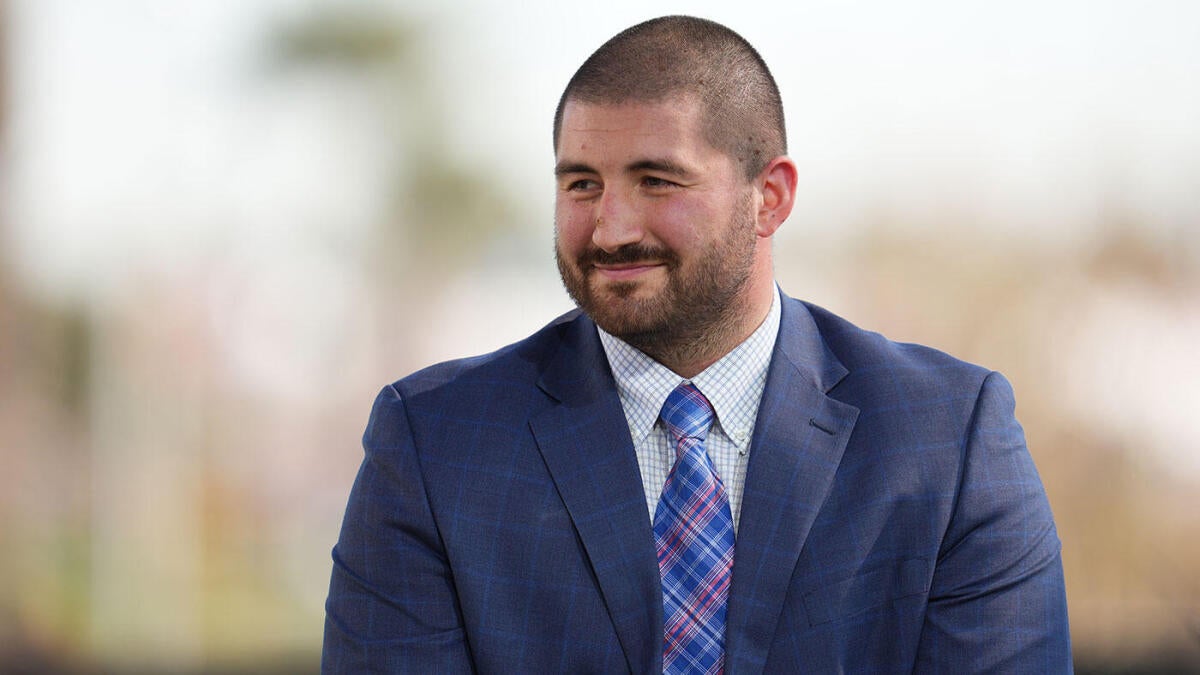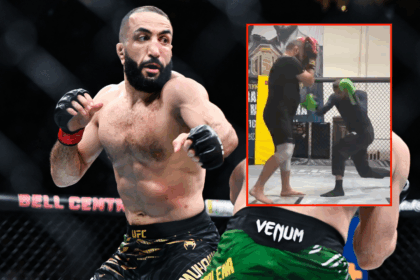JC Tretter acknowledges that one of his key strengths is accepting the negativity directed at him. On the field, opposing defensive linemen disliked him, and NFL team owners weren’t particularly enthusiastic about him during contract talks. Even within the NFL Players Association (NFLPA), many union members were not supportive of him. But after recent developments, Tretter has reached his limit. The former NFLPA president, who has served as the union’s chief strategy officer since October, announced on Sunday via CBS Sports that he will leave the NFLPA this week and will not pursue the interim executive director position.
Tretter revealed the toll this situation has taken on his family, stating, “It’s been very difficult for my family in the last few days. I can’t handle it anymore.” He clarified he’s not stepping away out of bitterness or rejection but because he feels he has nothing more to offer the organization. Lloyd Howell resigned as the NFLPA executive director late Thursday. Howell’s tenure was marked by multiple controversies, including leaked conspiracy complaints, potential conflicts of interest, and questionable expense reports involving two strip club trips, which ultimately led to his resignation.
Although members of the NFLPA’s executive committee were keen on Tretter becoming the interim executive director in the short term, Tretter says he never had ambitions to seize control of the union. His dedication to the players and the union mission drove his work over the past six years, but he now finds he cannot reconcile with the current state of affairs. In an exclusive interview with CBS Sports, Tretter addressed allegations about his motives and opened up about his reasons for leaving after weeks of silence.
Tretter defended the 2023 process that brought Howell to the executive director role, explaining it was a change meant to fix flaws in the prior selection process. Previously, selections were marred by leaks and wasted time, so the new method involved creating an executive committee of players to vet candidates before presenting finalists to the broader player representation. Despite Howell proving better in interviews, he was not the executive committee’s top choice; David White led a straw poll 10-1 over Howell, though this was not disclosed to the broader board.
Tretter, who voted for White, believes that his preference stemmed from his background in labor relations, as opposed to Howell’s finance background. He also noted that Howell’s previous controversies, some involving workplace discrimination and whistleblower issues, only came to light recently and were not part of the election vetting. The committee overwhelmingly favored candidates other than Howell, and there are calls for refining the hiring process for next time to avoid similar issues.
Tretter also reflected on moments of personal frustration, including a leaked text message where he called quarterback Russell Wilson a derogatory name after Wilson’s contract did not meet expectations. He denied any involvement in leaked conspiracy complaints or secret agreements with the NFL. He admitted to making a misjudgment when discussing player injuries in relation to contract negotiations, which led to a favorable ruling for the NFL by arbitrator Sidney Moreland. The NFLPA recently fired Moreland, but Tretter says he was not involved in that decision.
Drawing on a scene from “Game of Thrones,” Tretter likened accusations against him to being misunderstood and unfairly vilified. He reiterated that Howell was not his preferred candidate and that rumors of a quid pro quo arrangement for his Chief Strategy Officer position are inaccurate. Tretter described his post-presidency role helping Howell transition and emphasized their mutual respect until Howell’s controversies surfaced.
One of Tretter’s proudest achievements as NFLPA president was launching the NFLPA report card, an initiative that highlighted areas for improvement within teams. This data-driven approach influenced team investments in facilities and will guide future collective bargaining agreement negotiations. Despite the union’s current weakened state following Howell’s resignation, Tretter acknowledges improvements in player trust under Howell’s tenure before the controversies arose.
The revelations about Howell’s expense reports and subsequent resignation were a critical turning point, further weakening the union’s standing. Although the executive committee initially supported Howell, his departure was voluntary. While Tretter was open to serving as interim executive director during this crisis, he ultimately chose to leave the union entirely, feeling worn down by internal conflicts and criticisms.
Tretter highlighted that while he doesn’t believe the entire NFLPA staff dislikes him, he has strained relationships with some individuals. As the executive committee considers interim leadership options, Tretter’s departure marks a significant transition for the union. He expressed relief at finally speaking publicly and emphasized that his resignation is not due to disgrace but to protect his family’s well-being after months of turmoil.
Having studied labor relations extensively and led the union as president and now chief strategy officer, Tretter believes both he and the NFLPA need to find new paths independently. This moment represents a turning point where the union will seek new leadership and direction without him.
Fan Take: This news is crucial for NFL fans because it signals a major shakeup in player representation, which can influence future contract negotiations and league labor relations. Tretter’s departure highlights internal struggles that could impact the unity and strength of the NFL players’ voice, potentially affecting the sport’s business and player well-being going forward.



